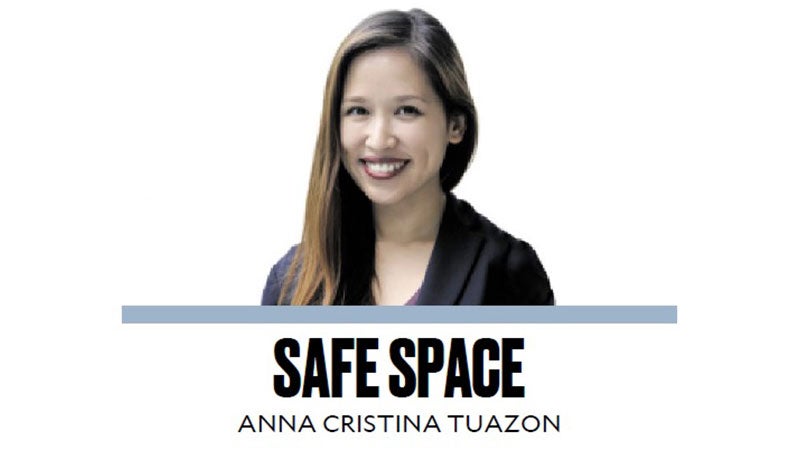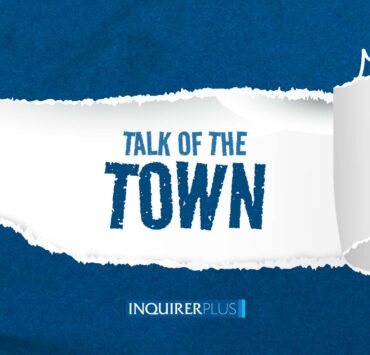DSWD’s short-sighted help

The photograph of a woman caught coming out of the sewers in Makati went viral, causing discomfort on many levels, not the least of which was the undeniability of poor living conditions in Manila. It reminds me a bit of Ursula K. Le Guin’s short story “The Ones Who Walk Away from Omelas,” where the town of Omelas guarantees every citizen happiness and abundance in exchange for the perpetual suffering of a child. Once citizens learn of the cause of their happiness, some walk away from it, unable to accept that their happiness is at the expense of someone else’s suffering. The woman’s presence amidst the bustling metropolis reminded us that despite the facade of cosmopolitanism and our preoccupation with our nine-to-five jobs, a significant portion of our society continues to struggle.
This viral moment does not only have a shock value but is also a concerning reflection of the system failing its people. In this case, it highlighted a severe jobs and housing crisis, coupled with urban density that forced people to live in unimaginable conditions. I was hoping that it would spur a national conversation on housing and poverty. I thought that the viral moment could turn into a serious discussion on inequality in the Philippines, with rich people living high up in their condos while the poor have to live literally underground. But, alas, the story twisted into something else.
The Department of Social Welfare and Development (DSWD), eagerly led by Secretary Rex Gatchalian, flexed that they assisted the woman “Rose” (not her real name), giving P80,000 to start a sari-sari store, in a whirlwind of social media posts and photo ops. In their excitement to use her for publicity, they dubbed her an “honorary social worker,” earning the ire of licensed social workers who correctly pointed out that social work is not merely doling out assistance but a systematic assessment of needs and ongoing monitoring and support via case management. It is also a disservice to their profession, marked by years of training and practical experience. It calls to mind that the DSWD secretary is not a social worker by profession, and thus his actions rub salt into the wounds of social workers who already feel that they are not taken seriously.
This PR stunt by the DSWD backfired, instead receiving backlash for what Filipinos deem as “ayuda politics.” Netizens questioned the ease with which Rose was given assistance, comparing the long lines and paperwork that people generally have to go through to obtain even the smallest of benefits. Others questioned the principle of dole-outs itself, seeing this as a band-aid solution.
Since the original story erroneously interpreted Rose as living in the sewers (apparently, she dropped a cutter in the drain and was only trying to retrieve it), the obvious basic need would be shelter and housing. So, my first reaction was befuddlement: how is P80,000 worth of wholesale groceries supposed to solve her housing situation? Where would she even put up her store? After being called out for giving out cash, the DSWD released a series of pictures showing Rose grocery shopping, with DSWD workers helping her set up her goods in her rental flat. Gatchalian then went on a media tour, defending their actions, insisting that their assistance was in accordance with their programs and that other families received similar benefits as well.
Unlike other netizens, I do not begrudge Rose the material assistance that she received. A lot of comments are in the vein of “sana all,” but I believe this is disingenuous. If people were offered to truly exchange places with her, we know they wouldn’t simply for one-time assistance. What is valid, however, is that these types of assistance seem to be given out on a whim. Ayuda has always had the stigma as a form of quid pro quo with politicians. The PR opportunity that the case of Rose presented proved too tempting for the DSWD and rushed to help her, not realizing that by doing so, they cut in front of the line. The solutions they offer might be well-meaning but are short-sighted. As a government agency, they can put pressure on addressing the issue of urban density causing homelessness and poverty. They could demand that more be done for people who are left behind.
My biggest concern now is Rose’s welfare. There are unfair comments, with the DSWD asking people to stop, citing that Rose feels victimized all over again. Unfortunately, these negative comments expose Filipinos’ indifference toward others’ sufferings and tendency to judge who is worthy. The DSWD, however, is mainly responsible for the negative backlash against Rose. They could’ve helped her privately without all the photo ops. Instead, they made her the face of their campaign. Even without backlash, publicly sharing that a rather large sum of money was given exposes Rose to unscrupulous people wanting to exploit her. By rushing into material assistance and not thinking things through, they exposed Rose to danger.
—————-
aatuazon@up.edu.ph


















Constant challenges to a maritime nation